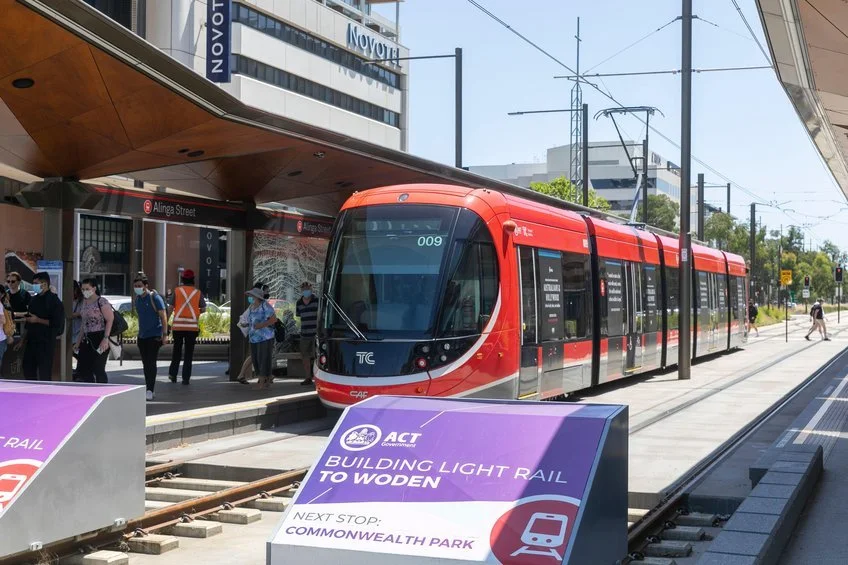Project: Canberra Light Rail Stage 2A - Business Engagement
Designing mitigation strategies to support businesses during the development of light rail.
Client: ACT Government: Infrastructure Canberra
Project Dates: 2019-2021
Services Delivered:
Strategy & action plan development
Local business engagement & recommendations for support
Stakeholder mapping, analysis, categorisation and assessment
Ministerial and stakeholder briefings
Managing in-person and digital engagement events
Key messaging & communications collateral development
Statutory consultation to support planning approvals
Project Background:
Light rail is a key part of developing Canberra’s integrated public transport network across the city, supporting future growth and sustainability, and maintaining a world-class standard of living. Light Rail Stage 2A will extend the light rail system from Alinga Street to Commonwealth Park. It will feature three new stops at Edinburgh Avenue, City South, and Commonwealth Park. The stops will help people access the ANU, their homes, and businesses in City West and New Acton.
The Challenge:
The continued development of the light rail project is complex from both a planning and operational perspective, and the project includes a high number of impacted stakeholders. Light Rail Stage 2A has significant and sustained impacts, with the raising of London Circuit and the construction of a new bridge over Parkes Way for the light rail, between the two Commonwealth Avenue bridges. Lessons from Stage 1 identified the need to improve engagement and to provide continuous support, specifically to businesses to accurately understand project impacts and to provide relevant and targeted recommendations for future business support.
Our Approach:
Social Atlas initially undertook extensive stakeholder mapping analysis of both businesses and residents in the Light Rail Stage 2A project area. This analysis revealed there were higher than anticipated numbers of residents, as well as a large proportion of students to be considered, and consultation addressed how people of all abilities would move safely through the area as pedestrians, cyclists and light rail users.
With regards to businesses, Social Atlas was responsible for developing and implementing the business consultation strategy which focused on maximising reach and engagement. Using a mix of engagement techniques including drop-in sessions for businesses representatives and industry bodies, the team extensively consulted with stakeholders on construction and operational impacts, as well as conducting surveys to assess operations, usage trends and development requirements. This analysis revealed the complex nature of business operations specific to this area, with multiple medical and legal entities that had time-bound and secure logistics needs. Based on profiling, a categorised heat map was then produced to inform the construction schedule and to help minimise future impacts.
An extensive series of recommendations and guidance was produced on how to better support businesses, identifying areas of opportunity to enable them to continue to operate, and to drive footfall and patronage in the area during downtimes in construction and through supporting service opportunities within the supply chain.
Our consultants also managed comprehensive project awareness campaigns, coordinating collateral and developing key messaging to shift the focus to benefit-led communications, delivering a brand-new creative campaign for light rail. The campaign was rolled out via multiple community events including pop-up information displays, community reference groups and extensive door knocking activity.
Project Outcomes:
The consultation strategy we developed and implemented resulted in almost 400 businesses engaging directly with our team. This feedback was used to inform the ongoing strategic approach to engagement with local businesses, and many of our recommendations are now reflected in the Business Partnership Plans used on the project, as well as other projects being delivered by Infrastructure Canberra.


